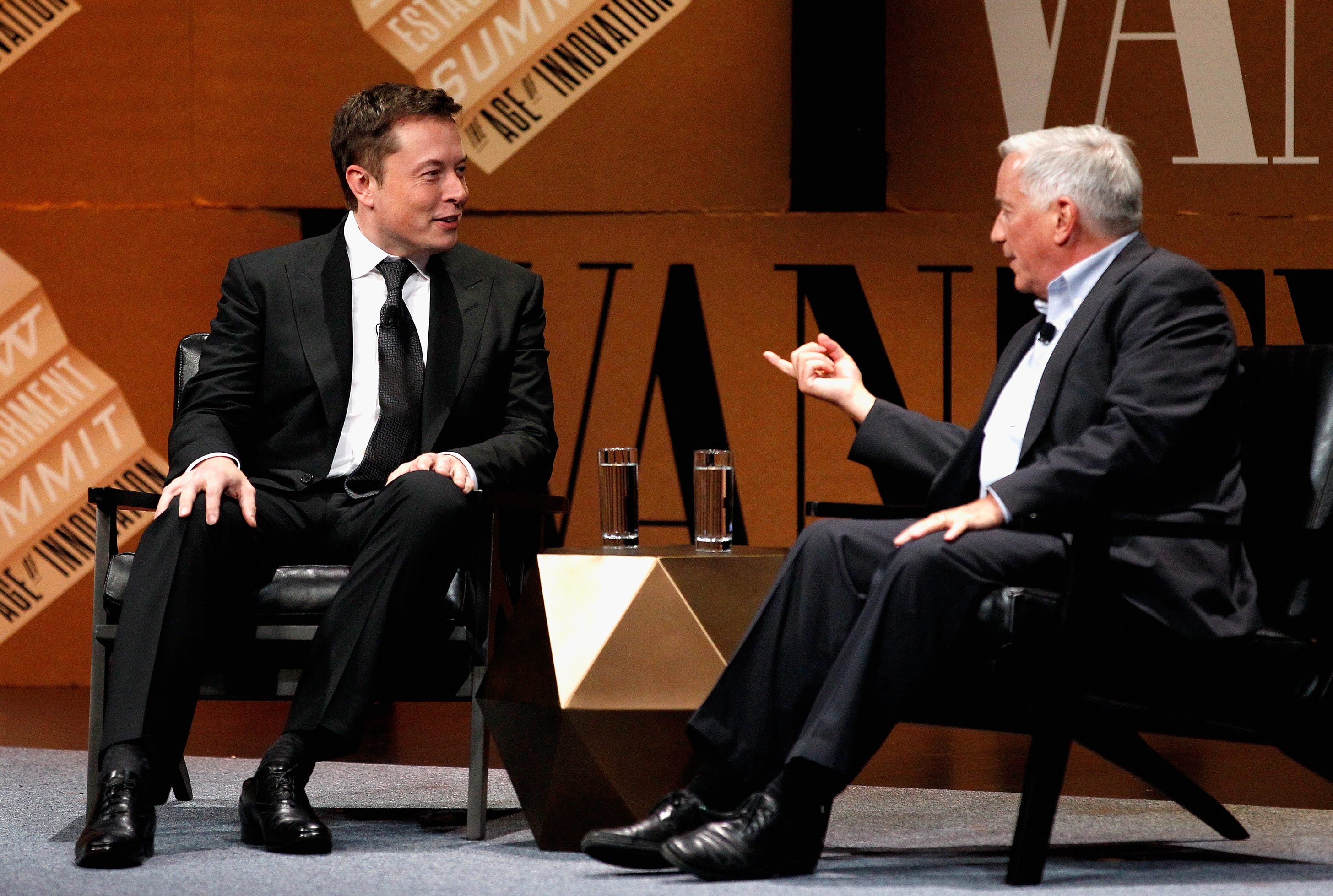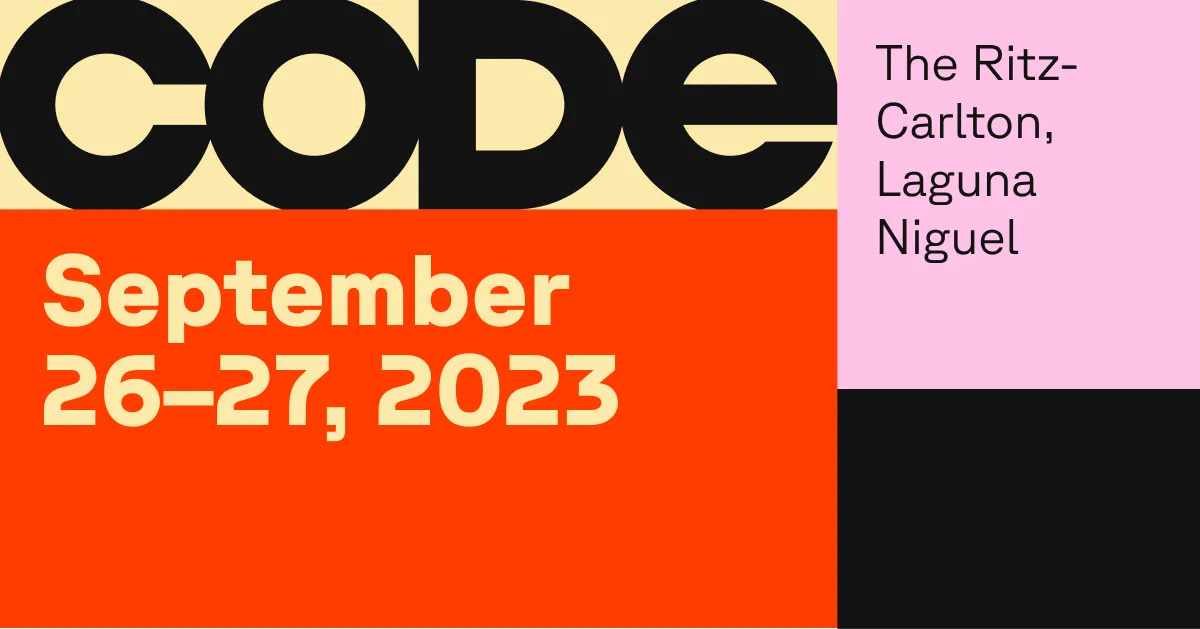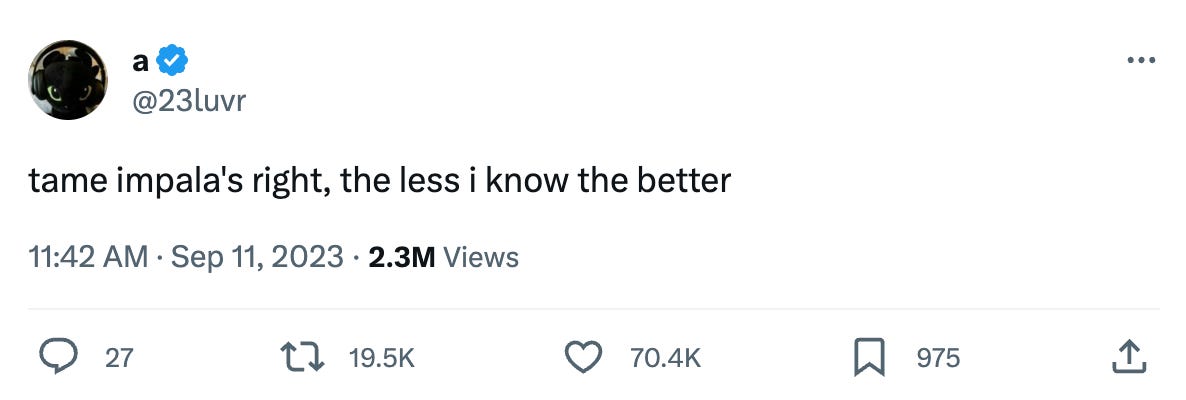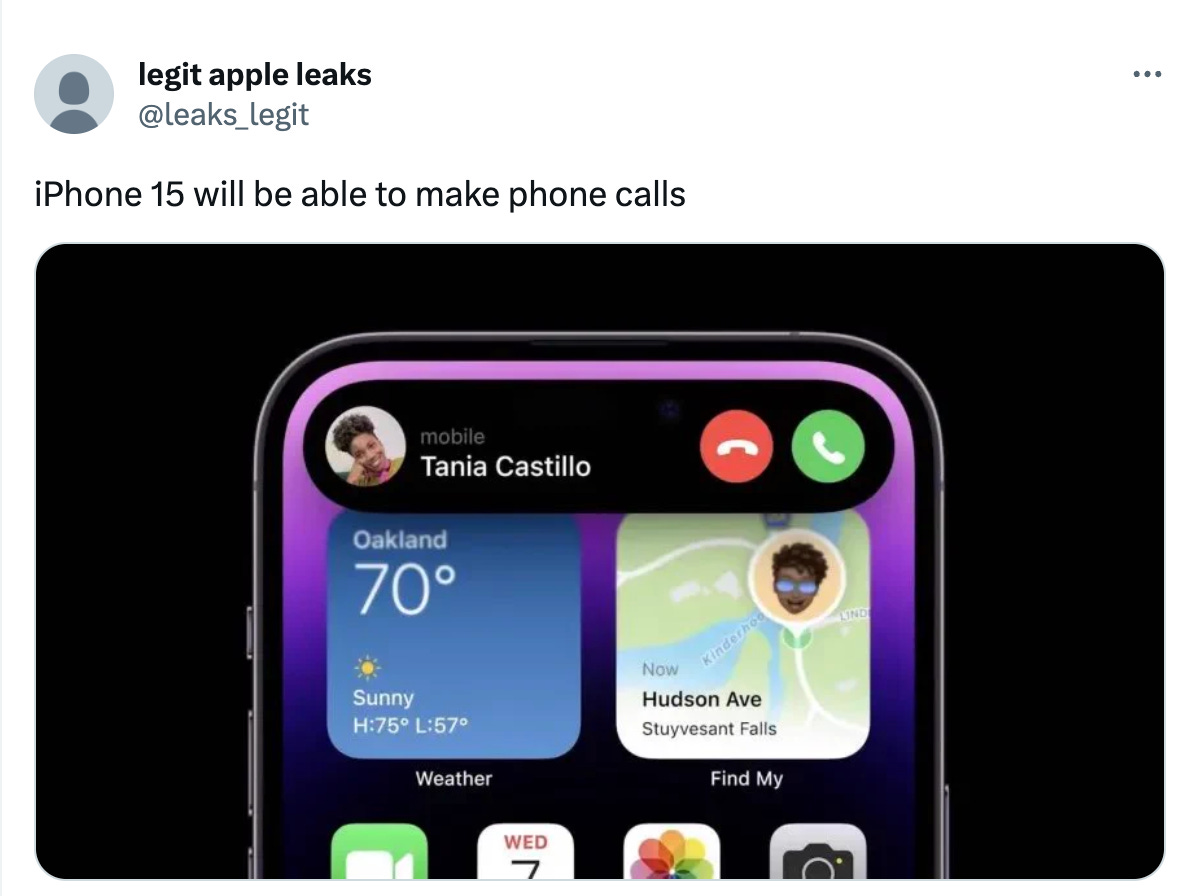Nine wild details from the new Elon Musk biography
Here’s this week’s free column — a look at some of the most surprising revelations in Walter Isaacson’s new biography of Elon Musk. Do you value independent, ad-free reporting on platforms and global tech policy? If so, maybe kick us ten bucks? It would mean a lot to us. Plus, we’ll email you first with all our scoops — like with our recent look at why the former Twitter may be bracing for an exodus of staffers. ➡️
Nine wild details from the new Elon Musk biographyWalter Isaacson brings new tales of Jack Dorsey, that Sergey Brin selfie, and moreOver the weekend, a highly anticipated book arrived in the mail. Elon Musk, Walter Isaacson’s first biography of a tech titan since his comprehensive take on Steve Jobs, followed from two years of Isaacson shadowing Musk in his travels around the world. Given Musk’s general antipathy toward the press, the book promised to offer the sort of fly-on-the-wall accounts of Musk’s recent life like no other. Over more than 600 pages, Musk details the improbable arc of Musk’s life, from his early life under a cruel father and relentless schoolyard bullying through his purchase of Twitter and recent decision to launch yet another company. Given Platformer’s close coverage of the Twitter saga over the past year, it was this aspect of the book that interested me the most. In some ways, Isaacson’s perspective on the story skews much closer to Musk’s than mine does — particularly in its depiction of Twitter 1.0 as more of an adult day-care center than a tech company. “Twitter prided itself on being a friendly place where coddling was considered a virtue,” Isaacson writes. At the same time, anyone who comes to this book looking for evidence that Musk screwed things up there will not leave disappointed. On the whole, Isaacson depicts Musk as an era-defining genius shaped by childhood trauma and a manic, visionary zeal to invent. At the same time, the biography does not suggest that Musk is pleasant, tolerable, or even safe to work for. After hundreds of pages of anecdotes, Isaacson notes accurately that Musk “preferred a scrappy, hard-driven environment where rabid warriors felt psychological danger rather than comfort.” In any event, given the general interest in its subject, I imagine it will be one of the year’s bestselling books. Below are top details that stood out to me. If you read it, let me know what I missed. (I’m leaving out the story that Musk sabotaged a Ukraine attack on Russia by disabling Starlink service, which Musk denied and Isaacson has since said he got wrong.) Twitter considered selling itself to Musk at a discount after he signed the original deal. Musk spent much of last year trying to get out of his deal for Twitter. Behind the scenes, he worked to get a discount. He wanted to save at least 10 percent on the purchase price; Twitter considered proposals that would have given him something closer to a 4 percent savings, Isaacson reports. Unfortunately for Musk, restructuring the deal would have given banks the chance to renegotiate the terms of their loans. Interest rates rose significantly during between the deal being signed and its closing date, which would have wiped out any discounts. The other big obstacle: in exchange for a lower price, Twitter’s C-suite wanted Musk to promise not to sue them in the future. Musk’s response? “We are never going to give them a legal release,” he said. “We will hunt every single one of them til the day they die.” Jack Dorsey almost bailed on investing in Twitter 2.0. The Twitter co-founder, who famously called Musk “the singular solution I trust” to “extend the light of consciousness” as the company’s owner, very nearly reneged on his promise to roll his 2.4 percent stake in Twitter 1.0 into the new company. Isaacson reports that he had been “unnerved by the controversy and drama” surrounding the acquisition after Musk walked that sink into Twitter headquarters, and Musk had to call him several times and reassure him “that he truly loved Twitter and wouldn’t harm it.” In the end, they struck a deal: if Dorsey ever wanted to cash out, Musk would pay him the original purchase price of $54.20 for the shares. As Dan Primack noted at Axios, Dorsey’s decision saved Musk about $1 billion. Musk sought to ban activists for organizing an advertiser boycott after he bought the company. From the start, Musk has faced pressure from activists who urged him not to reduce the company’s investments in content moderation. This pressure ratcheted up significantly after Musk posted a lurid, baseless conspiracy theory about the attack last year on Rep. Nancy Pelosi’s husband. That tweet, which he posted three days after buying the company, led some activist groups to call for an advertising boycott. Advertisers began leaving in droves. Musk was outraged, accusing them in one tweet of “trying to destroy free speech in America.” Musk believed the activist groups were trying to “blackmail” him into taking action, Isaacson reports. He shared that view with Yoel Roth, then his head of trust and safety, and ordered Roth to ban the activists. Roth protested that the activists hadn’t violated any of the site’s published rules. “I’m changing Twitter policy right now,” Musk said, according to Isaacson. “Blackmail is prohibited as of right now. Ban. Ban them.” Roth ignored the directive, and Musk forgot about it. The issue would of course be renewed this month, when Musk focused his rage on one of those activist groups in particular. Musk knew the Twitter Blue rollout was going to be a disaster. Last year, we were the first to report that Twitter’s trust and safety team had presented Musk with a seven-page list of recommendations designed to blunt the impact of the massive wave of impersonations that it correctly predicted would follow the introduction of paid verification badges. At the time, I assumed that Musk simply didn’t believe it would be as bad as the trust and safety team suggested, and blundered ahead anyway. As Isaacson tells it, the story was even stranger. After reading the recommendations, he writes, Musk agreed to delay the launch — but only by two days. He then insisted that the company move forward, even while warning his lieutenants that disaster was likely to follow. “There will be a massive attack,” he told a group of product leaders on November 7. “There’s going to be a swarm of bad actors who will test the defenses. They will try to impersonate me and others and then go to the press, which will want to destroy us. It will be World War Three over the blue check marks. So we have to do everything possible to not have this be a total exploding egg-on-face situation.” In the end, the company did almost nothing to address the trust and safety team’s concerns, and it was indeed a total exploding egg-on-face situation. Musk privately acknowledged Twitter would need to be “careful” about China. After Musk took over Twitter, some observers wrote that his international business ties deserved more scrutiny. (See Matt Yglesias on this point.) Among the top concerns was that Musk would have difficulty resisting calls to remove posts critical of the Chinese Communist Party due to the fact that China is a major market and manufacturing site for Tesla. When Musk brought in independent journalist Bari Weiss to write an installment of the Twitter Files last year, she pressed him on the issue. Musk had brought her in to tell the story that Twitter 1.0 executives had improperly restricted speech on the platform — but wouldn’t he soon find himself in a similar position in China? Isaacson writes:
Sergey Brin tried to avoid their famous selfie together. Last summer, the Wall Street Journal published a memorable story alleging that Musk’s friendship with Google co-founder Sergey Brin had been ruptured after the former had a brief affair with Brin’s wife. “Right after the story broke, they were at a party together, and Musk maneuvered himself into a position where he could take a selfie with Brin, which Brin tried to avoid,” Isaacson reports. I would have read 500 more words about this party, and Brin’s feelings on the matter, but sadly the tale ends here. When I went to go look at the selfie today, I noticed that it had been deleted. (It is memorialized in the Daily Mail.) Musk refused to work with Bill Gates on philanthropic issues because Gates took a short position on Tesla. On one hand, this hardly seems like a surprise — Musk’s antipathy toward short sellers is legendary. On the other, it’s painful to consider the good that might have been done had they been able to reach an accord. Projects that Gates pitched Musk on would have supported “refugees, American schools, and AIDS cure, eradicating some mosquito types through gene drives, and genetically modified seeds that will resist the effects of climate change.” Gates seems to have laughed off the whole conflict — “he was super mean to me, but he’s super mean to so many people, so you can’t take it personally.” Grimes said “I imagine it’s a little bit of a dick-measuring contest.” At the time of their meeting, incidentally, Gates had lost $1.5 billion shorting Tesla. Hollywood super agent Ari Emmanuel told Musk he would run Twitter for $100 million. Emanuel, who is CEO of the entertainment firm Endeavor, saw an opportunity last year when Musk signaled that he would go through with his $44 billion acquisition of the company. “In a three-paragraph message sent on the encrypted text service Signal,” Isaacson writes, Emanuel made a proposal: he and Endeavor would run Twitter. “For a fee of $100 million, he said, he would take charge of cutting costs, creating a better culture, and managing relations with advertisers and marketers.” The idea was quickly dismissed. Jared Birchall, a top Musk lieutenant, said it was “the most insulting, demeaning, insane message.” Musk had always intended to run Twitter himself. Musk’s favorite mobile game is called The Battle of Polytopia. A turn-based strategy game not dissimilar from Civilization, Musk has at one point or another forced most of those closest to him to play against him. He once stopped speaking to Grimes for a day because she surprised him with a fireball attack. “It’s a huge fucking deal” he reportedly told her. At one point Musk tells his brother, Kimbal, that playing Polytopia will teach him how to be a better CEO. Eventually they write down a shared list of life lessons they have learned from the game, including “Empathy is not an asset,” “optimize every turn” and “double down.” Elon Musk is in stores now. On the podcast this week: Walter Isaacson joins us to discuss his two years shadowing Elon Musk. PLUS: Kevin and I talk through the government’s case against Google’s search dominance. Apple | Spotify | Stitcher | Amazon | Google Want to hang out with me in person? Applications are open for this year’s Code Conference, hosted by me, The Verge’s Nilay Patel, and CNBC’s Julia Boorstin. Join us for live, on-stage journalism with X/Twitter CEO Linda Yaccarino, GM CEO Mary Barra, Microsoft CTO Kevin Scott, and many more speakers to come. It’s all happening September 26th and 27th at The Ritz-Carlton, Laguna Niguel. Follow the latest here. Governing
Industry
Those good postsFor more good posts every day, follow Casey’s Instagram stories. (Link) (Link) (Link) Talk to usSend us tips, comments, questions, and more Musk details: casey@platformer.news and zoe@platformer.news. By design, the vast majority of Platformer readers never pay anything for the journalism it provides. But you made it all the way to the end of this week’s edition — maybe not for the first time. Want to support more journalism like what you read today? If so, click here: |
Older messages
Google goes to court
Friday, September 8, 2023
On the eve of a major antitrust trial — and its 25th birthday — the company is bracing for a fight
The unbearable slowness of Meta's Oversight Board
Wednesday, August 30, 2023
A 234-day wait to get a ruling in a case about incitement to violence suggests that something important is broken
Why note-taking apps don't make us smarter
Friday, August 25, 2023
They're designed for storage, not sparking insights. Can AI change that?
Elon Musk's creep show
Tuesday, August 15, 2023
Caught in a series of lies about his willingness to fight Mark Zuckerberg, the billionaire's disturbing spiral accelerates
It's time to change how we cover Elon Musk
Tuesday, August 8, 2023
After a weekend of whoppers about X and fighting Mark Zuckerberg, the press should take a more skeptical approach
You Might Also Like
BSSA #116 - Outsourcing to scale 🚀
Tuesday, March 4, 2025
March 04, 2025 | Read Online Hello everyone! The Wide Event is almost sold out. More than 90% of the tickets have been booked. If you're one of the people waiting until the last minute to purchase,
🔥 The secret factories big brands don’t want you to know 👗👖
Tuesday, March 4, 2025
The best fashion suppliers don't advertise—here's how to find them. Hey Friend , If you've ever struggled to find high-quality fashion manufacturers, there's a reason: The best
Making Wayves
Tuesday, March 4, 2025
+ Girls just wanna have funding; e-bike turf war View in browser Powered by ViennaUP Author-Martin by Martin Coulter Good morning there, Since 2021, VC firm Future Planet Capital (FPC) has secured more
Animal Shine And Doctor Stein 🐇
Monday, March 3, 2025
And another non-unique app͏ ͏ ͏ ͏ ͏ ͏ ͏ ͏ ͏ ͏ ͏ ͏ ͏ ͏ ͏ ͏ ͏ ͏ ͏ ͏ ͏ ͏ ͏ ͏ ͏ ͏ ͏ ͏ ͏ ͏ ͏ ͏ ͏ ͏ ͏ ͏ ͏ ͏ ͏ ͏ ͏ ͏ ͏ ͏ ͏ ͏ ͏ ͏ ͏ ͏ ͏ ͏ ͏ ͏ ͏ ͏ ͏ ͏
upcoming analyst-led events
Monday, March 3, 2025
the future of the customer journey, tech M&A predictions, and the industrial AI arms race. CB-Insights-Logo-light copy Upcoming analyst-led webinars Highlights: The future of the customer journey,
last call...
Monday, March 3, 2025
are you ready? ͏ ͏ ͏ ͏ ͏ ͏ ͏ ͏ ͏ ͏ ͏ ͏ ͏ ͏ ͏ ͏ ͏ ͏ ͏ ͏ ͏ ͏ ͏ ͏ ͏ ͏ ͏ ͏ ͏ ͏ ͏ ͏ ͏ ͏ ͏ ͏ ͏ ͏ ͏ ͏ ͏ ͏ ͏ ͏ ͏ ͏ ͏ ͏ ͏ ͏ ͏ ͏ ͏ ͏ ͏ ͏ ͏ ͏ ͏ ͏ ͏ ͏ ͏ ͏ ͏ ͏ ͏ ͏ ͏ ͏ ͏ ͏ ͏ ͏ ͏ ͏ ͏ ͏ ͏ ͏ ͏ ͏ ͏ ͏ ͏ ͏ ͏ ͏ ͏ ͏ ͏ ͏ ͏
🦄 Dimmable window technology
Monday, March 3, 2025
Miru is creating windows that uniformly tint—usable in cars, homes, and more.
Lopsided AI Revenues
Monday, March 3, 2025
Tomasz Tunguz Venture Capitalist If you were forwarded this newsletter, and you'd like to receive it in the future, subscribe here. Lopsided AI Revenues Which is the best business in AI at the
📂 NEW: 140 SaaS Marketing Ideas eBook 📕
Monday, March 3, 2025
Most SaaS marketing follows the same playbook. The same channels. The same tactics. The same results. But the biggest wins? They come from smart risks, creative experiments, and ideas you
17 Silicon Valley Startups Raised $633Million - Week of March 3, 2025
Monday, March 3, 2025
🌴 Upfront Summit 2025 Recap 💰 Why Is Warren Buffett Hoarding $300B in Cash 💰 US Crypto Strategic Reserve ⚡ Blackstone / QTS AI Power Strains 🇨🇳 Wan 2.1 - Sora of China ͏ ͏ ͏ ͏ ͏ ͏ ͏ ͏ ͏ ͏ ͏ ͏ ͏ ͏ ͏ ͏ ͏






